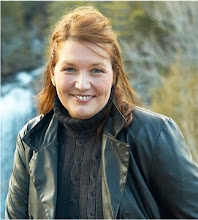Populism - A political ideology that emphasizes government's role as an agent of the common man, the worker, and the farmer, in struggles against concentrated wealth and power.
Personal Responsibility - Ones ability to take care of oneself by means of, keeping healthy, managing ones emotions, keeping a sound mind, treating yourself with respect, etc.
One of my dearest friends is a journalist by trade and by passion. By all measures, most people would put him in the usual, populist-leaning main stream media category. And I guess, in a way, they would be correct. But he also makes me think too. The other day we almost came to blows over a heated discussion on personal responsibility and healthcare. He made me feel like Attila the Hun for thinking that people have a personal responsibility in their lifestyle choices that ultimately lead to expensive healthcare solutions...he even suggested that I was not a real Christian for feeling this way. That hit a nerve.
In a perfect and loving world, I think that all people deserve healthcare, protection from harm, protection from pain and suffering and the ability to live happily ever after. Peace on earth is on that list too.
But the question of the day still remains...WHO/WHAT is going to give that to you and HOW are they going to do it...and at what COST. Let's explore this further.
WHO/WHAT - Today's Populists believe that the government should be taking care of all these needs. One-stop shopping of sorts. Okay, centralizing decision making can be a good thing. But WHO is making those decisions? People who are poor, underprivileged, farmers, common men? No, usually it is people in the wealth and power business who are doing what they THINK those segments of the society need. I think this is the total irony of the Populist movement. Have you ever been poor and had some well meaning rich person give you a microwave when you really just needed your electricity turned back on? Yep, that is the type of cluelessness we are talking about here. But heck, the fella got a microwave that he can sell on the streets for what he really needs...but there is probably a law (or will be) that will fine him or put him in jail for doing that. My bad.
HOW - Today's Populists believe the end justifies the means as long as we are helping the poor, underprivileged, farmers, commen men etc. We (read government) know what is best for you, so here are some more laws to make sure you follow them or go to jail/get fined...for your own good of course. Have you ever had a judge/policeman/govt official find some law to spank you with so that you completely understand what he/she thinks is good for you? Populist empowered legislators LOVE making rules and laws to make people behave, because everyone knows the poor/common man just can't be trusted to make the "right" decisions or they wouldn't be poor/common, now would they? I really would love to call some of these "do-gooders" out as a plantation owner one of these days.
COST - What cost are you going to pay for having all of your needs taken care of? Freedom....people telling you how to live your life, and making sure you do it that way. Money...people taking most of your paycheck to do what they think is the best use of it. Personal Initiative...why should you have a new thought, idea or self-help plan, everything is being done for you. Will we finally lose the humanity that we were trying to propagate in the first place?
I know I am starting to sound like Ayn Rand these days, but there are unintended consequences for every new law that is passed. Personal Responsibility must make its way back into our legislatures nationwide. I want all the things that the Populists want, I just disagree with the WHO/WHAT/HOW/COST factors involved. And yes, as a Christian, I feel that God is okay with that.
'Traditional Marriage Parade' divides rural Iowa town
-
*Photo by Sandy Millar, Unsplash*A Baptist pastor of small-town Ottumwa in
Iowa challenged the fairness of a city council proclamation to celebrate
Pride ...
10 hours ago



